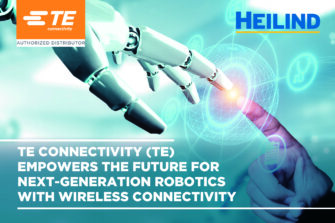Renesas announced that they are collaborating on 28nm (nanometer) embedded flash (eFlash) process technology for manufacturing microcontrollers (MCUs) targeted at next-generation green and autonomous vehicles. The automotive MCUs employing this new 28nm process technology are slated for sample shipment and mass production in 2017 and 2020, respectively.
Renesas and TSMC have collaborated closely on MCUs with on-chip flash memory since the 90nm technology generation. Four years after working together on 40nm MCU platform and production, the two companies are now extending their collaboration to develop 28nm MCUs that pave the way for making future green and autonomous-driving vehicles more efficient and reliable.
Through this collaboration, Renesas’ highly reliable and fast Metal-Oxide-Nitride-Oxide-Silicon (MONOS) eFlash technology will combine with TSMC’s high-performance, low-power 28nm high-K metal gate process technology to produce the world’s leading automotive MCUs for a broader range of applications such as autonomous vehicle sensor control, coordinated control among electronic control units (ECUs), fuel-efficient engine control for green vehicles, and highly efficient motor inverter control for electric vehicles.
With the 28nm eFlash process technology developed through this collaboration, MCUs can meet the demands of next-generation automotive computing by delivering a maximum of more than four times the program memory capacity and greater than four-fold performance improvement compared to the current 40nm technology. Other enhancements on the new MCUs include the use of multiple CPU cores, more advanced security, and support for multiple interface standards.
“The auto industry is currently undergoing a major transformation, with next-generation green vehicles and autonomous-driving vehicles on the horizon,” said Ryuji Omura, Executive Vice President, Renesas Electronics Corporation. “Innovative semiconductor technology is essential to accelerate the development of next-generation automobiles, and I am confident that the collaboration with TSMC on the technology development of next-generation MCUs will deliver enhanced peace of mind regarding the stable supply to our customers into the future. We are committed to building an MCU ecosystem and to continuing to act as a leader in propelling the MCU industry forward.”
“Collaborating with Renesas demonstrates our commitment to offering competitive technologies to achieve maximum value for customers’ products,” said Dr. BJ Woo, TSMC’s Vice President, Business Development. “By leveraging TSMC’s 28nm high-performance, energy-efficient technology, we believe we can showcase how best we optimize one of our advanced technologies to meet the demands and innovation for the next generation of automotive devices and deliver a highly competitive performance/cost advantage.”
Renesas MONOS is a structure in which each transistor in the flash cell consists of three layers—oxide, nitride, and oxide—on a silicon base, with a metal control gate at the top. Renesas has accumulated more than two decades of experience in the use of MONOS flash memory technology by providing MCUs for IC cards. Based on the track record in MONOS technology, Renesas successfully extended the technology by developing a split-gate (SG) structure suitable for MCU internal flash memory. The new “SG-MONOS” –type flash memory realizes MCUs with high reliability, high speed and low power consumption.
Source: Renesas Electronics












